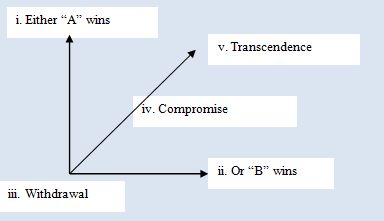Armed Conflict Transformation: Our Strengths and Weaknesses
TRANSCEND MEMBERS, 16 Sep 2024
René Wadlow – TRANSCEND Media Service
12 Sep 2024 – The United Nations system is preparing for the U.N. Summit of the Future to be held in New York on 4 days, 21-24 September. There is to be presented a “Pact for the Future” drawn up by government representatives under the chairmanship of the representatives of Germany and Namibia. There is also to be presented a “People’s Pact for the Future” drawn up by persons from a wide range of non-governmental organizations (NGOs).
These preparations have led to many proposals for reform of the United Nations and the Bretton Woods institutions (World Bank and the IMF) and for the creation of new institutions in order to mitigate the threats we face. In the light of the current geopolitical deadlocks such as the armed conflicts Russia-Ukraine, Israelis-Palestinians – one cannot expect many specific agreements, but ideas are being usefully discussed.
Thus, it might be useful to look at our TRANSCEND efforts at armed conflict transformation, our strengths and weaknesses and roads for future activities. It think that it is worth looking at three aspects: training, analysis, action.
Much of the TRANSCEND approach grew out of the peace research institutions which began in the 1950s and developed in the 1960-1970s with the creation of a large number of peace research programs usually within universities. The International Peace Research Association (IPRA) was created to be a link among those teaching. As I am no longer directly related to a teaching institution, I have not followed the efforts of IPRA and so must leave the evaluation to others who are directly in contact.
Analysis of current situations and proposals for peaceful transformations makes up the bulk of TRANSCEND Media Service work. We need to look at the extent that other media republish our articles. I have seen few in the peace media I receive, but I do not have an overview.
Action, of course, is crucial. There are some, but too few, non-governmental efforts at mediation of on-going conflicts and tension reduction in areas where armed conflict is possible such as between the two Korean states. It is important that a TRANSCEND orientation be present in such discussions. We will have to see how such participation can be increased.
It will be useful to have the views of our active colleagues.
______________________________________
 René Wadlow is a member of the TRANSCEND Network for Peace Development Environment. He is President of the Association of World Citizens, an international peace organization with consultative status with ECOSOC, the United Nations organ facilitating international cooperation and problem-solving in economic and social issues, and editor of Transnational Perspectives.
René Wadlow is a member of the TRANSCEND Network for Peace Development Environment. He is President of the Association of World Citizens, an international peace organization with consultative status with ECOSOC, the United Nations organ facilitating international cooperation and problem-solving in economic and social issues, and editor of Transnational Perspectives.
Tags: Conflict Transformation, TRANSCEND Method, UN Summit of the Future, Violent conflict
This article originally appeared on Transcend Media Service (TMS) on 16 Sep 2024.
Anticopyright: Editorials and articles originated on TMS may be freely reprinted, disseminated, translated and used as background material, provided an acknowledgement and link to the source, TMS: Armed Conflict Transformation: Our Strengths and Weaknesses, is included. Thank you.
If you enjoyed this article, please donate to TMS to join the growing list of TMS Supporters.

This work is licensed under a CC BY-NC 4.0 License.
